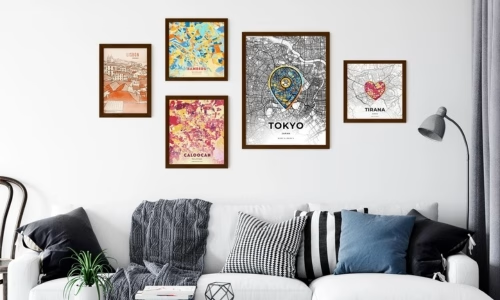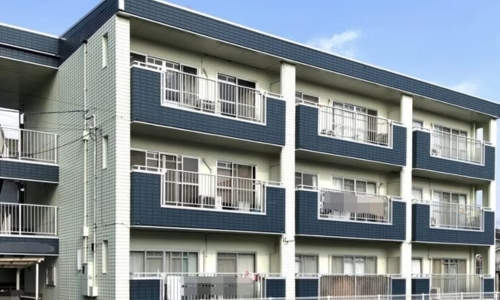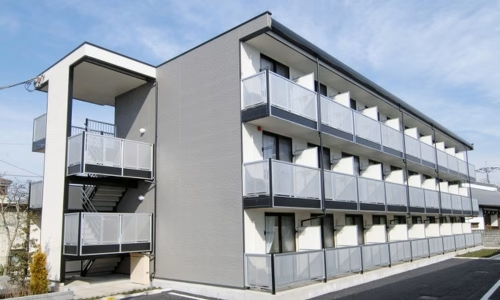Looking for apartments for rent in Tokyo Japan? Whether you’re moving for work, study, or just a change of scenery, Tokyo offers a dynamic mix of culture, convenience, and comfort that’s hard to match. But navigating the housing scene can be overwhelming, especially for first-timers. This guide breaks it all down, helping you find the right place and settle in with ease.
Why Choose Tokyo as Your Next Home?
Tokyo isn’t just the political and economic center of Japan, it’s a vibrant metropolis that continues to rank among the world’s most livable cities. Life here is a unique blend of efficiency, modern comfort, and cultural richness. The city boasts one of the most reliable and punctual public transportation networks on the planet, making it incredibly easy to navigate even without a car. From early-morning commuters to late-night wanderers, Tokyo moves with clockwork precision.
But it’s not all business. Tokyo is also a city where food lovers, art enthusiasts, and nature seekers can all feel at home. From Michelin-starred restaurants and bustling izakayas to tranquil parks and centuries-old shrines tucked between skyscrapers, the diversity is staggering. Whether you’re here for career advancement, creative inspiration, or simply a change of pace, the city offers something that fits every lifestyle.
Moreover, Tokyo’s reputation for safety, low crime rates, and meticulous cleanliness adds to its appeal. The high standard of city infrastructure, well-maintained streets, clean public spaces, and responsive municipal services, creates a quality of life that’s hard to beat. For anyone exploring apartment rental in Tokyo, these factors combine to offer not just a place to live, but a lifestyle that’s both exciting and dependable.

Grasping the Tokyo Housing Market
When beginning your search for an apartment for rent in Tokyo, you’ll quickly discover that the city offers a wide range of layouts, each designed to suit different needs and lifestyles. Understanding these apartment types is essential for narrowing down your options.
For individuals or students, compact units like 1K or 1DK are the most common. These typically feature a single room with a separate kitchen (in the case of 1K) or a small dining area added (1DK). They’re practical, affordable, and often located near major train stations, perfect for solo living in the city.
If you’re a couple or planning to live with a partner, units labeled 1LDK or 2LDK might be a better fit. These include a dedicated living and dining space along with one or two bedrooms, offering more comfort and separation between areas. These layouts strike a balance between space and cost, making them very popular among young professionals and small families.
For larger households or those seeking more room to spread out, 3LDK and above provide multiple bedrooms and a generous living area. These spacious layouts are more commonly found in suburban neighborhoods or residential districts, where families can enjoy quieter surroundings and sometimes lower rent per square meter.
It’s also important to note that most Tokyo apartments are rented unfurnished, so you’ll need to budget for basic appliances and furniture. Lease agreements typically span two years, and initial move-in costs can be substantial. These upfront fees often include key money (a non-refundable gratuity to the landlord), security deposit, first month’s rent, and agency commission, amounting to four to six months’ worth of rent before you even move in.
Being aware of these expectations will help you prepare financially and avoid surprises as you navigate the Tokyo rental market.

Top Neighborhoods for Renting in Tokyo
Every neighborhood in Tokyo offers its own unique atmosphere and lifestyle benefits. Depending on your personal needs, preferences, and daily routine, some areas might suit you better than others. Here’s a quick guide to some standout districts:
- Shibuya – A lively and fashionable district known for its creative energy and vibrant nightlife. Ideal for young professionals, artists, or anyone who thrives in a dynamic, fast-paced environment.
- Meguro – Offers a peaceful, upscale feel with tree-lined streets and stylish residences. A great choice for those who value calm surroundings and a touch of sophistication, while still being close to the city center.
- Setagaya – A favorite among families due to its spacious homes, quiet neighborhoods, and abundance of parks. It’s perfect if you’re looking for a more laid-back, community-oriented setting.
- Koto – Features modern residential developments along the waterfront. With its clean, urban design and easy access to business districts, Koto is well-suited for working professionals who prefer contemporary living.
- Taito – Steeped in culture and history, this area offers more budget-friendly housing near iconic sites like Ueno and Asakusa. It’s a good fit for those who enjoy a traditional feel and appreciate access to local markets, temples, and museums.
Ultimately, the right neighborhood for you will depend on your lifestyle, daily commute, and what kind of environment makes you feel most at home.
Average Monthly Rent in Tokyo (2025)
Monthly rent in Tokyo can differ significantly depending on the neighborhood and apartment layout. Here’s a general breakdown to help you estimate costs:
- Studio units (1K or 1DK) typically range from ¥70,000 to ¥120,000, offering a compact yet functional space for singles or students.
- Mid-sized apartments (1LDK to 2LDK) fall between ¥130,000 and ¥250,000, ideal for couples or small families seeking extra room.
- Larger homes (3LDK and above) usually start at ¥250,000, with high-end options reaching ¥500,000 or more, especially in upscale or central areas.
Keep in mind that properties close to major transit hubs like Shinjuku, Tokyo Station, or Roppongi often come with a premium price tag. In addition to rent, tenants typically pay another ¥15,000 to ¥30,000 monthly for utilities, internet, and building maintenance fees.
To put this in perspective, the average annual salary in Japan in 2025 is around ¥4.5 million, but residents in Tokyo often earn more due to the higher cost of living. If you’re planning your move, it’s smart to keep your housing budget within 25–30% of your monthly income for financial comfort.
Apartment Hunting in Japan for Foreign Nationals
Foreigners can absolutely rent apartments in Tokyo, but understanding the local rental process can make things much smoother. Key points to keep in mind are:
- Language challenges: Many property listings and rental contracts are in Japanese. Partnering with an English-speaking real estate agent can help you avoid misunderstandings and navigate the process with confidence.
- Guarantor needed: Most landlords will ask for a guarantor (保証人), someone who agrees to cover your rent if you’re unable to pay. If you don’t have one in Japan, you can use a guarantor company, which typically charges a fee (usually around 50–100% of one month’s rent, depending on the contract).
- Required documents: Be prepared to show your residence card, passport, proof of income (such as a payslip or employment contract), and sometimes a Japanese bank account for monthly rent payments.
While the process might seem complicated at first, especially with cultural and legal differences, many foreigners successfully find housing in Tokyo every year. With proper guidance and preparation, renting in Japan can be straightforward and stress-free.
Tokyo Apartment Search Guide
Here’s how most renters kick off their search for an apartment in Tokyo, Japan:
- Online real estate platforms: Popular websites like SUUMO, Homes.jp, and GaijinPot Housing are great starting points. They let you filter by area, rent range, apartment type, and even foreigner-friendly listings.
- Local real estate agencies: Many agencies in Tokyo offer bilingual support and specialize in helping foreigners find suitable housing. Visiting these offices can also give you access to listings not posted online.
- Company-provided housing: If you’re moving for a job, check whether your employer offers corporate housing or support. It helps make the process easier and lowers initial expenses.
Once you find a place you like, schedule a viewing right away, apartments in Tokyo, especially in popular areas, tend to get snapped up quickly. Always review location details, contract terms, and any additional fees like cleaning charges or key money before signing anything. Being proactive and informed makes all the difference in securing a great rental.
The Lease Signing Process
Once you’ve chosen your apartment in Tokyo, the next step is signing the lease. Here’s a breakdown of the next steps:
- Initial costs: Be prepared to pay several upfront fees. These often include the first month’s rent, a security deposit (usually 1–2 months’ rent), key money (a non-refundable gift to the landlord), and a real estate agent fee (typically one month’s rent). Additional charges may also apply for insurance or guarantor company services.
- Lease terms: Most rental contracts are for two years, with a renewal fee (often equal to one month’s rent) required if you choose to stay longer. Make sure you understand the notice period for moving out, typically one or two months.
- Before move-in: Walk through the apartment with a checklist. Look for any existing damage, confirm which appliances or furnishings are included (like air conditioning, stovetop, water heater), and take photos for your records.
Carefully read the contract or request a translated version if you’re unsure about any clauses. It’s crucial to understand your rights and responsibilities before signing, especially regarding cancellation policies, repair obligations, and penalties.
Life in a Tokyo Apartment: What to Expect
Apartments in Tokyo are often compact, but their smart design makes everyday living surprisingly comfortable. To get the most out of your space and experience, consider the following:
- Opt for modular or foldable furniture: Pieces like sofa beds, collapsible tables, and stackable storage units help maximize functionality in tight quarters.
- Follow local garbage rules: Waste separation in Japan is taken seriously. You’ll likely need to sort your trash into categories like burnable, non-burnable, plastics, and recyclables, each collected on specific days.
- Keep noise to a minimum: Walls in many older buildings are thin, so it’s best to avoid loud music or late-night conversations. Quiet hours are often informally observed, especially in residential areas.
- Know the building policies: Some apartments may have restrictions, such as no pets, no musical instruments, or even curfews on shared entrances or lights-out times.
While adjusting to life in a typical Japanese apartment can take time, many residents find it rewarding. The efficient layouts, clean living environment, and community respect make the experience uniquely Japanese, and quite charming once you settle in.
Saving Money While Renting
Living in Tokyo can be surprisingly affordable with the right approach. Here are some smart tips to help you save on rent and make the most of your budget:
- Choose suburban areas: Neighborhoods like Nerima, Itabashi, and Adachi offer larger apartments at lower prices compared to central districts. These areas are well-connected by train, making them great for commuters.
- Time your move: Try to relocate during off-peak seasons like summer or winter, when there’s less competition and landlords may be more open to negotiation.
- Consider older buildings: While they may lack the latest amenities, older apartments are often well-maintained, spacious, and significantly more affordable than brand-new units.
- Try negotiating renewal fees: When it’s time to renew your lease, you may be able to negotiate or waive certain fees, especially if you’ve been a reliable tenant.
By making strategic choices and understanding the local housing market, you can enjoy the Tokyo lifestyle without overspending, leaving more money for food, travel, and fun.
Conclusion
Renting an apartment in Tokyo isn’t just about finding a place to live, it’s the beginning of your adventure in one of the world’s most vibrant and dynamic cities. While the process might differ from what you’re used to, having the right knowledge and support can turn it into a smooth and even enjoyable experience.
Whether you’re coming for a short-term opportunity or settling in for the long haul, Tokyo’s rental market has something for every lifestyle and budget. Take your time, stay informed, and move through each step with confidence, and before you know it, Tokyo won’t just be your destination; it’ll be your home.






Leave a Reply